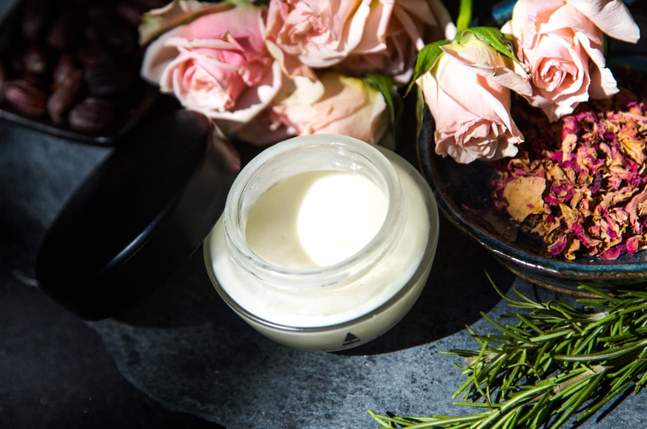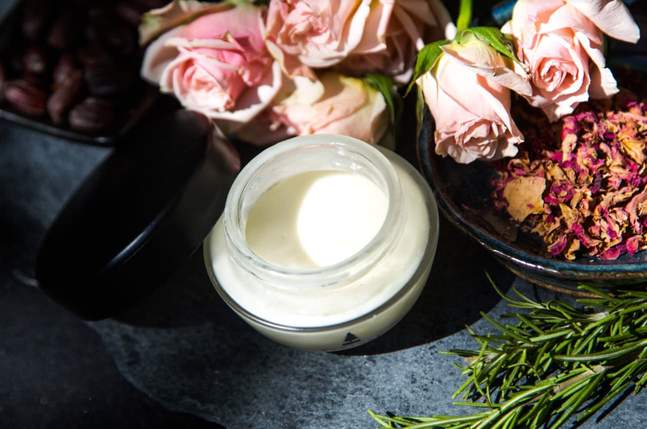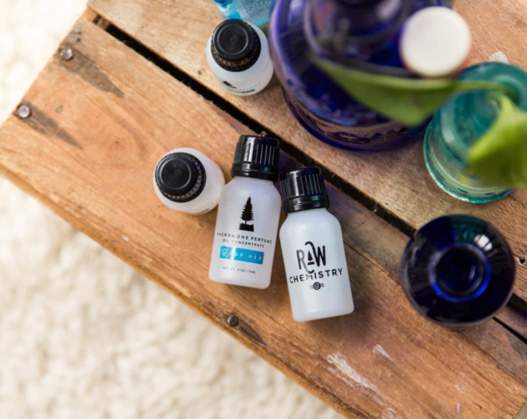
Choosing the Best Face Moisturizer for Your Needs
It is a truth universally acknowledged that everyone is in need of the best facial moisturizer for his or her needs. It’s not just a pampering product, it is key to healthy and anti-aging skin.
When it comes to choosing facial moisturizers, it's not about expense or the latest trend. It's about accepting that there is science behind anti-aging moisturizer technology, and following the science to the best moisturizer for you.
Let's go through some ingredients and tips for choosing the best face moisturizer for your needs. Your moisturizer doesn't have to include every single ingredient, but it's a good guide to the right choice.
Choosing the Best Face Moisturizer for Your Needs
First, go vegan in your face moisturizer by using products not made from or tested on animals. Besides avoiding anything even remotely cruel to animals, vegan moisturizers are scientifically more organic, easier for your skin to absorb, and hold much less potential to stress or irritate your skin. That is the first thing you need to know, because all of our needed basics of the best face moisturizer for your needs are vegan.
The Vitamin Basics
Yes to Vitamin A
Vitamin A is responsible for drying excessive oiliness in our skin, and for exfoliating it--removing the dead skin cells that sit on your skin's surface. While this may cause some redness or itchiness while it gets rid of all the extra dead skin, the results are brilliant.
Because the dead skin is removed and new skin cells are encouraged to develop, collagen--the part of our flesh that creates the healthy look--fills sagging skin, lessening wrinkles and making us look healthier and brighter.
Yes to Vitamin E
Vitamin E's most basic function is to help our own body organs work well. It promotes healing, blood flow, and even brain activity. But its most powerful contribution, especially to moisturizers, is as an antioxidant.
Antioxidants fight free radicals, which are small compounds that bombard our bodies from inside and out, the natural result of our bodily functions. Antioxidants stick to free radicals, stopping them from harming the body. This means any free radicals attacking your face from inside or out can no longer damage your skin.
Yes to Vitamin C
Vitamin C complements Vitamin A perfectly. As Vitamin A helps our skin exfoliate, Vitamin C boosts collagen production with a vengeance. Our skin becomes firmer and more elastic, heals faster, and fills out wrinkles and eyebags. When paired with Vitamin A and Vitamin E, it can work its scientific magic without Interruption.
Yes to Vitamin B5
Any one or any combination of Vitamins A, E, or C would be potent. But put them with Vitamin B5, and there is another effect altogether. If Vitamin A exfoliates, Vitamin E protects, and Vitamin C fills out our skin, B5 promotes intensive healing. It repairs the skin, lessening scarring, regenerating the skin cells themselves. Even surgery patients take it to help their healing; how much more will it work on our faces? Especially as it hydrates your skin and even makes it hard for scars to form.
The Oils and Extracts
Yes to Aloe Vera
Aloe vera is a clear gel extracted from a plant of the cactus family. As old as the early days of Egypt, it soothes the skin and moisturizes it, often acting as a protective layer between the skin and makeup, or skin and the elements. It gives any face moisturizer a refreshing and soothing feel.
Yes to Jojoba Oil
Like aloe vera, which is extracted from its cactus plant, jojoba oil is derived from shrubs that thrive in the desert. It is an aggressive moisturizer, with the oil being used directly to bring moisture back to dry and unhealthy hair, lips, and skin. When used in a face moisturizer, it reduces water loss and keeps the skin fresh.
Yes to Avocado Oil
Avocado oil works as a natural sunscreen, forming a shield over your skin to hold back ultraviolet radiation. Because of this, it protects your skin against various free radicals that bombard it from the sun, causing damage. This makes it a great pair with Vitamin E. The best part is that it's all natural state, as an extract from the avocado fruit, means, you don't need to rely on synthetically produced sunscreens for this kind of skin protection.
Yes to Rosehip Seed Oil
Rosehip seed oil is derived from rose seeds, or from the rose hips that remain after the petals have been removed. They are an excellent source of “essential fatty acids”--a funny set of words to go together, but it is scientifically true that something can be essential, fatty, and an acid at the same time. Because it is a source of healthy fats, it boosts skin health through regeneration and healing. When carefully blended into a face moisturizer, it helps the skin regain health and a natural glow.
Yes to Sunflower Seed Oil
Sunflower seed oil is rich in Vitamins E and C, protecting the skin as antioxidants and promoting its health at the same time. Unique to this ingredient is Omega-6 acid, which relaxes and heals muscles it is applied to. This means it also reduces stress and toxins on the skin, promoting anti-aging, lessening wrinkles, and boosting healthy moisturization.
The Surfactants and Emulsifiers
Fancy words, but they mean practically the same thing when it comes to your face moisturizer. If you ever wondered how all of those ingredients in your facial moisturizer blended to give you that smooth feeling when you applied it, this is the secret.
Yes to Stearic Acid
Let's not jump too fast at the word “acid,” the poor ingredient can't help its name. Stearic acid is a plant (or animal, if not vegan) derivative, a non-synthetic fatty acid. You can find it in soap, lotion, and even oil pastels. It is a surfactant, which helps all the ingredients in your face moisturizer blend smoothly and with a thicker consistency. It is also a powerful cleanser and a natural moisturizer because of the water content it can hold.
Yes to Emulsifying Wax
Not the prettiest name either, but emulsifying wax is a vital ingredient in your face moisturizer. It is extracted from plant oils (when vegan), mixed with a cleanser, and becomes an emulsifier. In other words, it helps all your oils and other ingredients blend with water and stick together. It improves your moisturizer shelf life and helps your moisturizer stick and become easily absorbed.
What Do You Say No To?
Choosing the best face moisturizer for your needs also means knowing what you don't want to see in the ingredients, so let's run through some moisturizer red flags.
No to Synthetics
We're not just being overly picky when we say that synthetic oils, emulsifiers, and moisturizing ingredients are ultimately damaging to the skin. Organic and all-natural ingredients often have a conditioning and moisturizing effect on your skin naturally, and they are easily absorbed and used by the body. Anything synthetic is the equivalent of clogging your face with plastic.
No to Silicones
Silicones come in a terrifying array of different names and compounds, so you might not catch them all. Pay attention instead to ingredient lists, and research whatever you don't recognize from our healthy ingredients. Silicones may seem to fill in the wrinkles and hydrate your skin, but what they really tend to do is lock dirt and debris on your skin, trap water in an unhealthy way in your cells, and cause long-term damage.
No to Parabens
Parabens are preservatives. That alone should raise all your red flags. Although we see parabens used in our shampoo, deodorant, and even toothpaste, we don't need need them massaged into anything as sensitive as facial skin. The less chemicals your moisturizer has, the more gentle it tends to be with your skin, with more natural effects and results.
No to Phthalates
The Huffington Post names phthalates among the 10 toxic beauty ingredients to avoid. They increase flexibility and softness in Plastics, working best--in a sense--with other synthetic ingredients. Play it safe and make sure your moisturizer is phthalates-free. One trick is avoiding anything with a strong fragrance, unless it is labeled “all-natural.”
No to Glycerin; in Large Amounts
In our quest for skin health and safety, we may become paranoid in our ingredient choices. Well-informed and cautious is what we want to be. Given that, let's see where glycerin stands on our ingredient list.
Glycerin is a humectant, that draws water towards itself. It is actually often used as medication to treat oily skin or acne. In small amounts, it draws moisture from deeper levels in the skin or from the air, to moisturize your skin. It works well after a long shower and your moisturizer routine.
But when used in large amounts or carelessly, it can damage the skin by drying out the bottom layer. When used with natural moisturizers, it has enough to work with, and it can keep your top layer of skin moisturized without causing extra damage.
Choosing the Best Face Moisturizer for Your Needs
You might think you want just a few of those healthy ingredients in your face moisturizer, but they work all together to create the best results. And you might think that just one or two unhealthy ingredients don't make so much of a difference, but they do. Use a face moisturizer that makes you feel and look healthy all the way.

